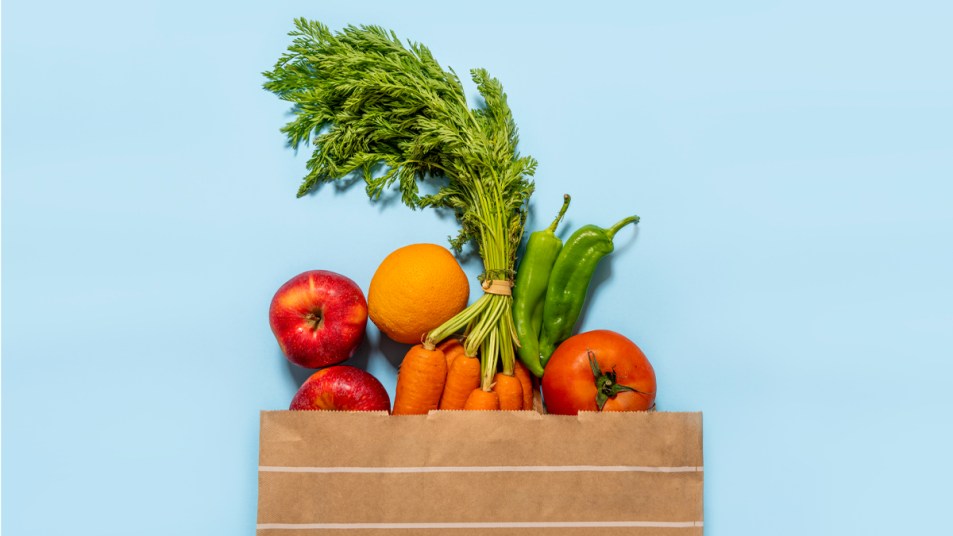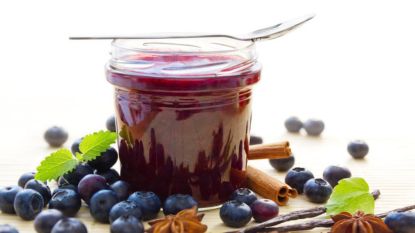8 Simple Tips to Make Groceries Last Longer

A whopping 40 percent of food is tossed out a year in the US — a big waste of food and money. Read on for savvy tips to get the make your groceries last longer and get the most out of your purchases!
Know the real expiration date.
“A mistake a lot of us make is tossing food when it’s passed the expiration, ‘best by,’ or ‘sell by’ date. That’s why it’s always a good idea to know the items that can last longer than these dates suggest. Take eggs, for example — when they’re stored in the refrigerator below 40 degrees, they’ll keep three to five weeks after the ‘sell by’ date on their carton. Commercially prepared bread can last up to 18 days after the ‘sell by’ date if stored in a cool, dry pantry. Knowing this allows you to really save, since stores will reduce lots of items by 30 percent or more so they can move them before they expire.” — Kimberly Baker, food systems and safety program team director at Clemson University
Use what you have.
“We all know to take stock of what’s in the pantry, cabinets, and fridge before shopping, but doing it and then going to a recipe site like Allrecipes.com may mean you don’t have to shop at all! Just enter the ingredients you have, and a list of recipes featuring them will pop up. This will save you both time and money!” — Stephanie Nelson, founder of CouponMom.com
Store meat in the freezer.
“Your best bet to making meat (likely your most pricey purchase) last? Freeze it! Ground meat can stay in the freezer for three to six months and whole-muscle cuts (like steaks and roasts) for up to a year! Don’t like to wait for meat to defrost? Vacuum-sealed, whole-muscle cuts stay fresh in the fridge for four weeks from purchase and ground beef in foam trays with plastic wrap for one to two days raw and three to four days cooked!” — Janeal Yancey, PhD, a meat scientist at the University of Arkansas
Keep fresh herbs moist.
“To make soft herbs like cilantro and parsley last for up to two weeks, dunk them in cold water, shake off any excess, trim off the ends, and any brown spots, then place stem-down in a Mason jar with a little water in the bottom. Finally, cover with a plastic bag, secure in place with a rubber band and change the water every few days. This keeps them from losing too much moisture when stored in the fridge. Woody herbs like rosemary or thyme can be frozen and pulled out of the freezer as needed.” — Denise Bustard, food blogger at SweetPeasAndSaffron.com
Hold on to those cans.
“Not sure if those cans in your pantry are still good? If properly stored, the shelf life of high-acidity canned foods, like tomatoes and certain fruits like pineapple, are still good for a year past their expiration date, while low-acidity meats and veggies can have a shelf life of two to five years. How do you know when it’s time to toss them? If they’re rusted, cracked, leaking, or bulging. Those can all be signs that bacteria is present.” — Teresa Henson, Program Outreach and Nutrition Coordinator at the University of Arkansas
Put scraps to use.
“A super-easy way to save on groceries and reduce shopping trips: Freeze items you’d usually discard, such as carrot skins, tops, and bottoms of celery, meat bones, poultry carcasses, and seafood shells! You can use them to make chicken stock, for example, saving you up to $4 a carton over the same amount of store-bought stock. Also great? You can preserve the zest and juice of citrus that is about to go bad by freezing and thawing as needed to use in dressings or recipes. You’ll easily save cash by putting these items you’d usually throw out to good use.” — Diana Johnson, founder of EatingRichly.com
Be strategic with produce placement.
“Certain fruits, like apples, avocados, and bananas, release ethylene gas, which speeds up the ripening process of ethylene-sensitive produce, like grapes, leafy greens, and broccoli. So store them in separate bowls on the counter or different bins in the fridge. And keep garlic, onions, and potatoes in a cupboard; they like to be cool, but not fridge cool.” — Anna Barker, founder of LogicalDollar.com
Freeze dairy items.
“Yes, you can freeze dairy! Frozen milk will last for about three months — just be aware that milk expands when frozen, so you’ll want to leave room in the container to keep it from bursting. To thaw it out, leave in the refrigerator overnight or place in a sealed plastic bag and submerge in cold water. Hard cheeses like Cheddar, Swiss, and Monterey Jack are best for freezing and can keep for six to nine months when frozen in an airtight container, while semi-hard cheeses can last for four to eight weeks. Dairy products sold in cartons like sour cream, cottage cheese, and yogurt can be stored upside down right in the container to prevent mold and ice crystals from forming.” — Jennifer Giambroni, dairy expert at Real California Milk
A version of this article originally appeared in our print magazine, First for Women.













